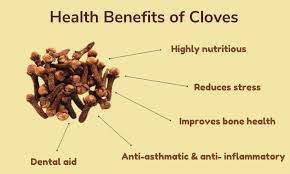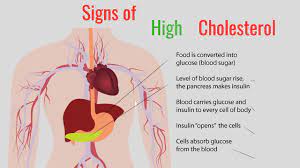The Medicinal Use of Cloves

The clove tree is an evergreen that can reach 8-12 meters (26-39 feet), with large leaves and clusters of bright-crimson flowers arranged in terminal clusters. The distinctive flavor of its flower buds comes from chemical compound eugenol which contributes its distinctive aroma and taste.
Cloves make a fantastic addition to any healthy diet, thanks to their antioxidant content that may protect against chronic diseases. Plus, their low caloric count makes cloves an excellent option for anyone on a restricted calorie plan.
Manganese-rich spices like turmeric contain manganese, which can help regulate your blood sugar levels while also decreasing inflammation, which increases the risk of cardiovascular disease and cancer.
Studies indicate that eating cloves regularly and in large amounts could help reduce your risk of stomach ulcers. According to preliminary research, clove eugenol may thicken layers of mucus that normally protect stomach lining, thus decreasing risk and helping existing ulcers heal faster.
Studies suggest that cloves contain nigericin, an active compound which may enhance insulin function and may therefore help lower your blood-sugar levels; however, more research needs to be conducted into how cloves influence these vital hormones.
Cloves may be familiarly seen sprinkling their way across food plates, but their versatility extends far beyond this practice. A pinch of cloves added to your morning coffee can add an aromatic spice, and they’re easy to incorporate into dessert recipes too!
Make an attractive pomander with cloves as another fun way of using cloves! According to Serena Poon, celebrity chef and nutritionist. For maximum effect use a combination of cloves with cinnamon and vanilla for this potpourri ball that releases an invigorating scent.
Clove oil has long been used as a remedy for toothache relief. Unfortunately, due to changes at FDA reclassifying eugenol as non-pain relieving agent.
Before taking clove oil or any product containing this spice, it’s wise to consult your physician first. Some individuals react badly to eugenol, leading them to dizziness or even coma in extreme cases.
Cloves can be purchased at health food stores and spice shops nationwide, where they’re typically sold as gels, creams and mouthwashes. Cloves have also long been used in traditional Chinese medicine and Ayurveda for health benefits.
Clove’s main constituent, eugenol, makes up 70-90% of its composition. Other compounds found within it include acetyl eugenol, vanillin, tannins and flavonoids.
Eugenol can be harmful in large doses, and taking too much could negatively impact your liver. You could experience symptoms like abdominal cramps or vomiting.
Consumption of cloves may cause hypoglycemia, a condition wherein blood sugar levels drop too low, so it’s wise to consult your physician prior to taking supplements that could influence this level. Diabetes patients or those on medication that alters your blood sugar should especially consider consulting their healthcare providers prior to making decisions about any potential supplements they plan to take that might alter blood sugar levels should take note: they could affect you negatively!




